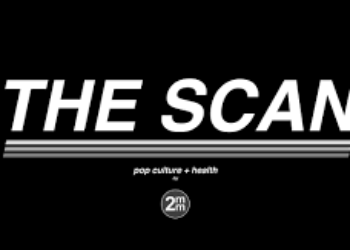Adenovirus-vectored ChAdOx1 nCoV-19 vaccine offers a good safety profile and strong immunogenicity against COVID-19 in older adults
1. The ChAdOx1 nCoV-19 vaccine against COVID-19 was well-tolerated overall, with reduced reactogenicity in older adults.
2. The ChAdOx1 nCoV-19 vaccine induced a robust SARS-CoV-2 spike-antibody response and showed similar immunogenicity across all age groups after a boost dose.
Evidence Rating Level: 1 (Excellent)
Study Rundown: As the SARS-CoV-2 virus continues to impact healthcare systems across the world, there is an increasing need for a vaccine. At the time of this article’s writing, there were 48 vaccines currently in development, although none have been licensed. Vaccines utilizing replication-deficient adenoviruses have shown success as vaccine vectors in recent years. The ChAdOx1 nCoV-19 vaccine, which employs such a vector, has shown promising efficacy and safety profiles in rhesus macaques as well as in a phase 1/2 trial in adults aged 18-55 years old. Uncertainty still exists, however, about its efficacy and safety in older adults aged >70 years old, largely considered to be in the highest-risk groups for COVID-19. This ongoing, single-blind phase 2/3 trial was created to evaluate the efficacy and safety profile of the ChAdOx1 nCoV-19 vaccine across all adult age groups (18-70+). Overall, adverse events to the vaccine were modest in all age groups, with a reduced number of events in those aged 70 and above. There was a robust antibody response to the vaccine, which did not vary based on age. Notably, these promising results are consistent with a vaccine against influenza sharing a similar construct, which was successfully developed for adults over 50 years old. An important limitation of this study, however, was that, although it was intended to evaluate the vaccine in older adults, the median age of those older than 70 was only 73-74 years old, which is perhaps not reflective of elderly populations in nursing homes.
Click to read the study in The Lancet
Click to read an accompanying editorial in The Lancet
Relevant Reading: Safety and immunogenicity of the ChAdOx1 nCoV-19 vaccine against SARS-CoV-2: a preliminary report of a phase 1/2, single-blind, randomised controlled trial.
In-Depth [randomized controlled trial]: This ongoing single-blind, multicenter, randomized controlled phase 2/3 trial took place at 20 centers across the United Kingdom. Participants were recruited in an age-escalation manner across age groups 18-55, 56-69 and 70+ years old. A total of 560 participants were enrolled into ten different subgroups (stratified by age, single versus two-dose regimen, low dose vs. standard dose cohort and experimental versus control group). The MenACWY vaccine was used as control to maintain masking with adverse events. The primary endpoints were efficacy and safety, with secondary outcomes focusing primarily on older adults aged 56-69 and 70+. Local adverse events were mostly benign and mild-moderate in severity. No severe local adverse events were reported. Overall, fatigue, headache, feverishness and myalgias were the most common systemic adverse events across all age groups, with fewer events reported in adults aged 56+. A general trend towards fewer adverse events as age increased was seen in both dose groups (low vs. standard). Anti-spike antibody titres at 28 days after prime vaccination were similar between those who received the low or standard-dose of ChAdOx1 nCoV-19. However, anti-spike IgG responses at day 28 decreased with increasing age. At 28 days after the boost vaccine, immunogenicity was similar across all two-dose groups, regardless of age or vaccine dose, as demonstrated by the non-significant differences in antibody titres (standard dose groups: median 20,713 arbitrary units [AU]/mL [IQR 13,898-33,550] for 18-55 years; 16 170 AU/mL [IQR 10,233-40,353] for 56-69 years; and 17,561 AU/mL [IQR 9,705-37,796] for ≥70 years).
Image: PD
©2020 2 Minute Medicine, Inc. All rights reserved. No works may be reproduced without expressed written consent from 2 Minute Medicine, Inc. Inquire about licensing here. No article should be construed as medical advice and is not intended as such by the authors or by 2 Minute Medicine, Inc.






